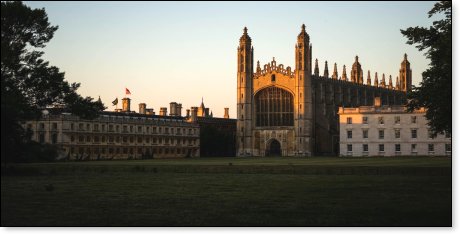
Tom DeWeese

In the fall of 2006, I received a most unexpected invitation to travel to Cambridge University in Great Britain and take part in a debate before a 200-year-old debating society called the Cambridge Union. The issue we were to debate: “This House believes that the United Nations is a dead loss!” There was an issue I could easily get behind.
My opponents in the debate included Simon Hughes, a member of Parliament and President of the Liberal Democrats; Lord David Hanney, Former UK Ambassador to the UN; and Salil Shetty, Director of the UN’s Millennium Campaign. The two other debaters who were supposed to be on my side were both pro-UN leftists. So, it was a typical five to one debate.
I was the first speaker and that meant I opened the debate. I said in my opening statement, “The UN’s only answer is government control – and confiscation of individual wealth and property. Nowhere is there mentioned in a single UN document that I have read an advocacy for the right to own private property. In fact, quite the opposite is the case, as nearly every UN document, report, working paper, program, treaty, protocol, declaration, and resolution is dedicated to the confiscation, redistribution, regulation, and tax of someone’s private property.”
To tepid applause I ended my opening statement by saying, “The United Nations is not ‘dysfunctional’ as some ‘reformers’ have claimed. It is a criminal enterprise in which no moral nation should participate, let alone perpetuate.”
When it came time for Liberal Democrat Simon Hughes to address the issue, he got right in my face and said, “I believe in redistribution of wealth!”
Unfortunately, at that time I was not used to the debate format and didn’t directly respond. Basically, I said “whose wealth – yours or theirs – as I pointed to the audience. He ignored me.
But if I were given the chance to repeat the experience today, this is what I would say: People have dreams and plans for their lives — how they want to live, what they want to accomplish. It’s what drives them to move forward. They study, learn, and work toward the goal. And as they begin to achieve it, along comes YOU – the government power-monger boldly declaring, “I’ll take half.”
By what right? What did your government policy contribute by helping them achieve their goals that would grant you the right to take half of everything they have worked to create? When organized crime – the Mafia – takes this exact same action, we arrest them. But, if you wear a government hat – well, its accepted as OK. But in reality, it’s the same theft, the same abuse of power over someone’s life, and it’s all done at the point of a gun! Whether it’s considered legal or not just depends on who is holding the gun!
In the 1960s, some lower-income individuals from Liverpool, England, had a dream. But they had to struggle every day to provide for their needs and meet unexpected demands to keep moving forward. To their benefit they had incredible talent and determined motivation to keep going against the odds. They called themselves The Beatles, and as they rose to success and achieved the wealth they had earned completely on their own, the British government declared that up to 90 percent of the Beatles earnings belonged to “the common good,” rather than the individual dreams and goals of The Beatles, who’s talent and drive had independently and legally earned it.
No entity, especially government, deserves to grab 90 percent of anything created by an individual. That’s why George Harrison wrote the song TAXMAN containing the line, “be thankful I don’t take it all.”
After the Cambridge Union debate our hosts held a reception to give the audience a chance to meet and talk with the debate participants. As it turned out, I was the only debater to attend the reception. Apparently being in control of Parliament or being a member of the House of Lords makes you too special to rub elbows with the lower classes whose dreams you intend to redistribute for your own grab for power.
However, I will never forget, as I walked into the reception, the young female Cambridge student who walked up to ask me a question. She asked, “you really don’t believe in redistribution of wealth?” I answered, “No, it’s theft.” She responded, “but if you have more than you need, shouldn’t you share it with others?” I answered, “Why should I?”
This is what she had been taught through the approved curriculum of one of the most prestigious schools in the world. She had no idea how individuals pursuing their dreams created a free society. Involuntary sharing, forced sacrifice, and accepted despair were to be the plight of the masses in the collective planned by the redistributing elites. And that’s the redistribution of wealth in which Simon Hughes so passionately worked to enforce on his subjects.
I began to explain to her the ideals of free enterprise controlled by individual choice in order to guarantee quality. The free market is the root of innovation and progress. I told her how private property ownership is the most powerful source of individual freedom. It’s the means for individuals to build their personal wealth. Moreover, if you don’t have your own property to stand on, how do you have the power of free speech?
I asked her if she had dreams for her life. She said of course she did. And I asked, will you achieve them through a government committee? She looked at me with a puzzled look. I explained, “only you know what interests you, what drives you to get up in the morning and push forward to your dream. While your dream motivates you, the government simply doesn’t care.”
As I went through these details, more than fifty others attending the reception began to gather around and listen. Some asked questions. More conversations broke out among them. I smiled as I noted that right there in the middle of Merry Olde England, the ideals of John Locke and Thomas Jefferson were being debated.
Finally, my young student said, “What an interesting point of view. How can I learn more.” I suggested that she read the works of free-market economists like Milton Freedman and Hernando DeSoto. And if she wanted to understand the fate of freedom-lovers who found the moral strength to overcome the darkness and suffering as they were forced to live under from government tyranny, I provided examples. These included the works of Russian writer Aleksandr Solzhenitsyn and his book The Gulag Archipelago. In addition, I recommended the tiny little book by Ayn Rand called Anthem which in fictional form clearly demonstrates the dangers of governments erasing the history of previous cultures, or controlling every action of individuals, right down to eliminating individuality by replacing their names with government-issued numbers. Each of these examples counters economic policies and controls over individuals as they are currently being pursued by the United Nations.
As I finished, seeing her intent interest and the positive reaction of those gathered around, I knew at that moment that I had won the debate!
(EDITOR'S NOTE: Consider a relevant article by Stephen Stone titled, "The property tax is corrupting America")
The views expressed by RenewAmerica columnists are their own and do not necessarily reflect the position of RenewAmerica or its affiliates.



















